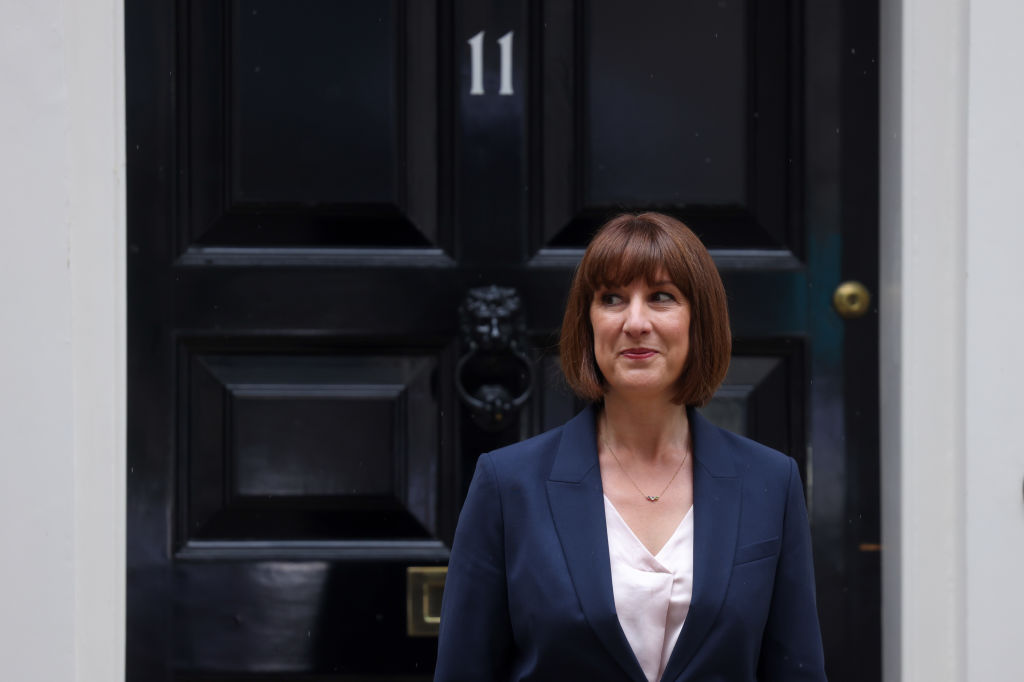IMF upgrades UK growth forecasts ahead of Budget - here is what it means
The upgrade comes ahead of chancellor Rachel Reeves's first Budget on 30 October, where she intends to explain how she will further boost UK economic growth


Get the latest financial news, insights and expert analysis from our award-winning MoneyWeek team, to help you understand what really matters when it comes to your finances.
You are now subscribed
Your newsletter sign-up was successful
Want to add more newsletters?

Twice daily
MoneyWeek
Get the latest financial news, insights and expert analysis from our award-winning MoneyWeek team, to help you understand what really matters when it comes to your finances.

Four times a week
Look After My Bills
Sign up to our free money-saving newsletter, filled with the latest news and expert advice to help you find the best tips and deals for managing your bills. Start saving today!
The UK economy is on track to expand faster than expected, with the International Monetary Fund (IMF) upgrading its growth predictions for the country ahead of this month’s Budget.
The IMF said UK gross domestic product (GDP) will rise by 1.1% this year - a significant increase on its previous forecast of 0.7% in July.
The upgrade comes ahead of chancellor Rachel Reeves's first Budget on 30 October, where she intends to explain how she will boost UK economic growth, with tax rises expected.
MoneyWeek
Subscribe to MoneyWeek today and get your first six magazine issues absolutely FREE

Sign up to Money Morning
Don't miss the latest investment and personal finances news, market analysis, plus money-saving tips with our free twice-daily newsletter
Don't miss the latest investment and personal finances news, market analysis, plus money-saving tips with our free twice-daily newsletter
Reeves said: "It's welcome that the IMF has upgraded our growth forecast for this year, but I know there is more work to do.
"That is why the Budget next week will be about fixing the foundations to deliver change so we can protect working people, fix the NHS and rebuild Britain."
The boost comes after the UK economy also received the biggest annual growth upgrade of all the G7 countries from the Organisation for Economic Cooperation and Development (OECD) in September.
The OECD ranked Britain joint-second among the G7 developed countries, behind the US, in its most recent economic forecast. In May the Paris-based body had the UK in last place.
Describing Britain’s economic growth as “robust", the OECD said the UK economy was on course to expand by 1.1% this year, compared to a forecast of just 0.4% in the spring.
But, while economists were positive on growth, they said the UK is still set to have the highest inflation of the bloc, with its prediction of 2.7% inflation for this year meaning the UK is still the country in the G7 with the fastest-rising prices. The G7 countries consist of the UK, the US, France, Canada, Germany, Japan and Italy.
The IMF report also found that UK inflation for 2024 is set to be slightly higher than expected at 2.6%, having previously pointed towards a 2.5% reading.
What does the IMF upgrade mean for the UK economy and interest rates?
The revised figures will be pleasing for the UK government as it shows the British economy is moving in the right direction. However, the fact the IMF and the OECD believe the UK will still face high inflation over the course of the year is bad news for those calling for more cuts to interest rates.
Speaking after the Bank of England’s September decision to hold interest rates at 5%, governor Andrew Bailey said the MPC “should be able to reduce rates gradually over time” as long as there aren’t any surprises in the data. However, he was clear that the MPC would follow a cautious path ahead. “It’s vital that inflation stays low, so we need to be careful not to cut too fast or by too much,” he said.
Speaking in an interview with The Guardian a couple of weeks later, he displayed a slight shift in tone, adding that UK policymakers could become a “bit more aggressive” in their approach if inflation continues to cool.
The MPC does not meet in October, which means it only has two remaining meetings this year – one in November followed by another in December.
The majority of experts have said another rate cut now looks likely in November, after September's inflation reading came in at 1.7%. Some believe another cut could potentially follow in December, but much will depend on the economic data playing ball. Wage growth, core inflation and services inflation are all important metrics to watch.
Get the latest financial news, insights and expert analysis from our award-winning MoneyWeek team, to help you understand what really matters when it comes to your finances.
Chris is a freelance journalist, and was previously an editor and correspondent at the Financial Times as well as the business and money editor at The i Newspaper. He is also the author of the Virgin Money Maker, the personal finance guide published by Virgin Books, and has written for the BBC, The Wall Street Journal, The Independent, South China Morning Post, TimeOut, Barron's and The Guardian. He is a graduate in Economics.
-
 How to navigate the inheritance tax paperwork maze in nine clear steps
How to navigate the inheritance tax paperwork maze in nine clear stepsFamilies who cope best with inheritance tax (IHT) paperwork are those who plan ahead, say experts. We look at all documents you need to gather, regardless of whether you have an IHT bill to pay.
-
 Should you get financial advice when organising care for an elderly relative?
Should you get financial advice when organising care for an elderly relative?A tiny proportion of over 45s get help planning elderly relatives’ care – but is financial advice worth the cost?
